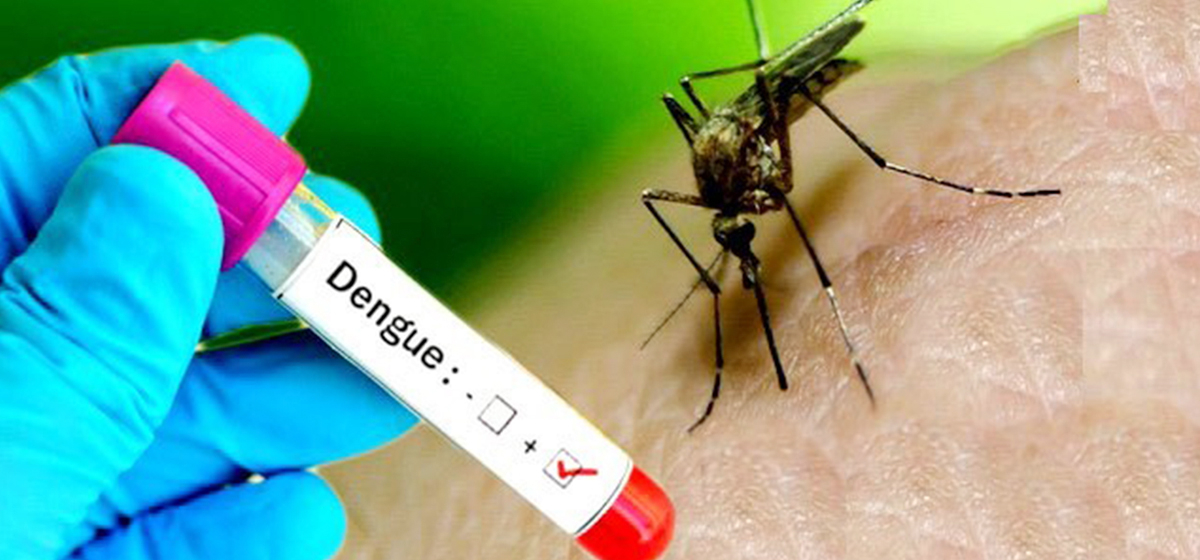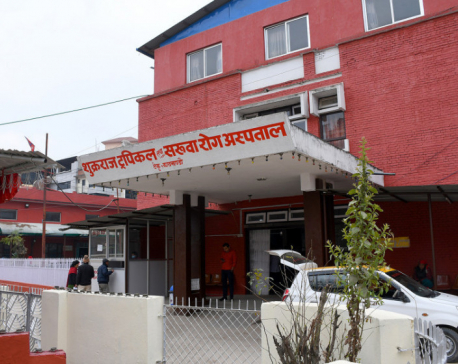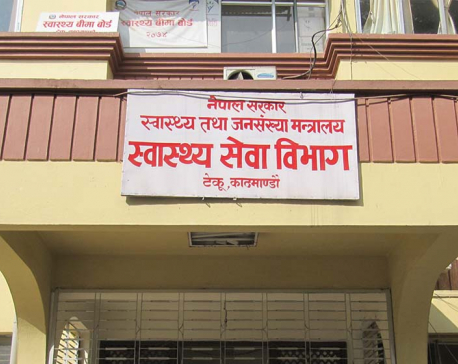
OR

KATHMANDU, Nov 7: The dengue infection which had significantly increased with the onset of rainfall has now slowed down.
The infection was so intense that there were reports of the detections of above 5,000 dengue cases in a single week when the infection was at its peak. According to the Epidemiology and Infectious Division, Department of Health Services, there were 624 dengue cases in a single week (November 1-7). A total of 17,017 dengue cases were reported in October followed by 27,029 in September. However, the infection slowed down with the beginning of the winter season, it has been said.
Division Director Dr Chuman Lal Das said the infection has gone down for the past two weeks. The figure is expected to make a significant fall in the next two weeks, according to him.
Shukraraj Tropical and Infectious Disease Hospital’s Director Dr Manisha Rawal said now there are only nine dengue patients in the hospital and among them, three are receiving treatment in the Intensive Care Unit while the remaining six are on general beds.
The winter season is not suitable for the breeding of mosquitoes causing dengue. So, the spread of the disease is likely to go down. In Nepal, the highest number of dengue cases was 50,263 since its first case in 2004. The infection was highest between mid-June and mid-October. The country reported no dengue cases in 2005 following its first case in 2004 and the infection reemerged in 2006 with the detection of 32. The death toll from the infection this year so far is 54, the Division confirmed. According to Tribhuvan University Teaching Hospital’s information officer, Ram Bikram Adhikari, at present 20 patients are being treated for dengue at the hospital. The World Health Organisation states dengue is a viral infection transmitted to humans through the bites of infected mosquitoes. The primary vectors that transmit the disease are Aedes aegypti mosquitoes and, to a lesser extent, Ae. albopictus.
You May Like This

Sukraraj Tropical hospital alone receiving hundreds of dengue patients daily
KATHMANDU, Sept 5: Dengue infection which has been spreading in the Kathmandu Valley for three weeks has now spread from... Read More...

Health department officials preparing to embezzle Rs 410 million in equipment purchase
KATHMANDU, August 7: The Department of Health Services under the Ministry of Health and Population has been preparing to purchase... Read More...

Nine new dengue cases detected in Kavre
KAVREPALANCHOWK, July 28: Viral infection of dengue that is transmitted through the bites of infected mosquitoes is increasing in Kavre... Read More...






Just In
- Class 12 exam starts today with participation of over 390,000 candidates
- Weather expected to be partially cloudy in hilly areas, clear in remaining areas
- Navigating the Digital Diplomacy Divide: Balancing Tradition and Technology in Global Relations
- Youth attempts suicide amid police torture over Facebook comments against home minister
- Time to declare EVMs’ end
- World Malaria Day: Foreign returnees more susceptible to the vector-borne disease
- MoEST seeks EC’s help in identifying teachers linked to political parties
- 70 community and national forests affected by fire in Parbat till Wednesday












Leave A Comment